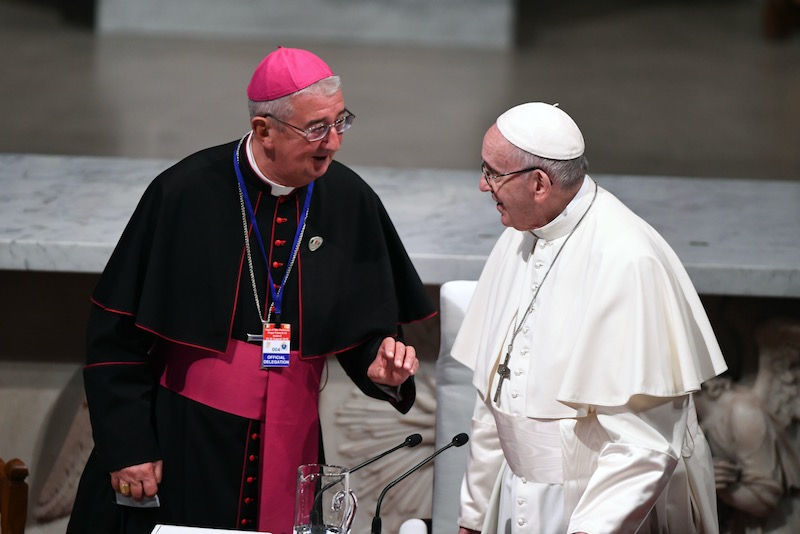The Berlin Administrative Court has rejected an appeal by The Friends of St Philipp Neri, a traditionalist Catholic community based at St Afra’s church in Berlin, to be allowed to hold Mass for 50 members of the faithful.
The court admitted that suspending religious services was an encroachment on the basic right of freedom of worship, but this was justified due to conflicting fundamental rights and values of constitutional rank.
As examples, the court quoted protecting the lives and health of those attending religious services and of the public in general, as also keeping up a properly functioning public health system. In order to protect these values, suspension of services for a limited duration was proportionate and did not affect the quintessence of religious liberty.
The court also pointed out that churches, mosques and synagogues were still open for individual believers who wanted to pray in silence.
The plaintiffs said in response that they would lodge a complaint with the Higher Administrative Court in Berlin.
“The Administrative Court’s decision not only constitutes an encroachment on religious liberty guaranteed by constitutional law but it also violates it sustainably”, Provost Gerald Goesche of St Afra declared. The right to practise one’s religion freely was granted unrestrictedly by constitutional law but the Administrative Court only allowed believers to visit churches individually for silent prayer which meant that the state de facto decided how one was to practice one’s religion, he pointed out. “And that is a right that the state is not entitled to”, he emphasised.
Religious services were more than silent prayers, he said, especially at Easter, the most important festival in the Christian calendar. “We, too, want to protect our congregation and ourselves from the Coronavirus and can guarantee that social distancing will be practised better in our churches than on public transport or in supermarkets,” Goesche emphasised.
The Administrative Court in Hessen came to the same decision as the court in Berlin concerning complaints against Mass suspension.
The German state of Mecklenburg-Vorpommern has allowed open-air services if social distancing of two metres is observed and the local health authority agrees.
Most German bishops support the Mass suspensions, but the Bishop of Passau, Stefan Oster, is sceptical.
The relationship between religious freedom and state control needed to be discussed, he told the German daily Passauer Neue Presse. “At the moment one can visit a supermarket but not celebrate Mass in large churches – not even with a small number of the faithful. However important it is to obey all these restrictions, it is equally important to include the churches in the gradual relaxing of the restrictions that are planned,” he underlined
The judges agreed with the applicants’ argument that the suspensions severely restricted religious liberty as for Catholics celebrating Mass together and receiving the Eucharist were a central element of their faith, especially at Easter. They also agreed that Mass in Church could not be compensated by streamed Masses on the internet or by individual prayer.
At the moment, however, protecting people’s health took precedence. If the suspensions were to be lifted, a great number of people would be infected.
At the same time the judges demanded a “strict examination of proportionality” should the suspensions be prolonged. (Up to now they extend to 19 April). If this were the case, one would have to consider whether the suspensions could be relaxed to a certain degree and under certain conditions. The same must apply to other religious communities, the judges said.
Provost Gerald Goesche of the Berlin St Afra community said he very much deplored the Supreme Court’s decision but was glad to see that, unlike the Berlin Administrative Court, the Supreme Court had confirmed the importance of Mass, especially at Easter, for Catholics.



 Loading ...
Loading ...